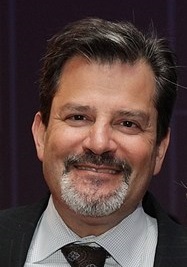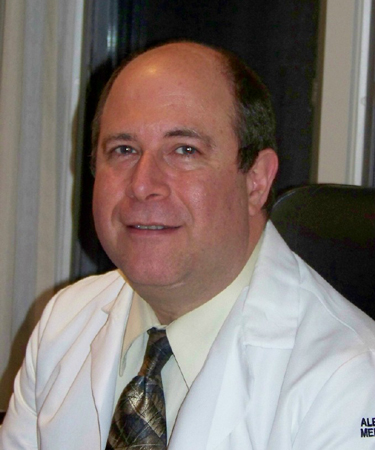Saturday November 09, 2019 –
Tuesday November 12, 2019
7:30am-12:50pm
NOV 9 – 12, 2019
Primary Care Challenges In Endocrinology, Internal Medicine And Hospital Medicine
Event Details
When
Where
AMS Webinars
Event Code
webinar-pc-11092020
Course Topics
Day 1
Adrenal Insufficiency- Primary and Secondary.
Upon completion of this session, using evidence-based medicine and clinical practice guidelines, to include Endocrine Society Guidelines, the participant should be able to: COMP
- Apply principles learned to evaluate the diagnostic tests used to confirm the diagnosis or primary or secondary adrenal insufficiency.
- Employ therapeutic options for patients including pregnant patients with primary or secondary adrenal insufficiency.
Thyroid Case Studies.
Upon completion of this session, using evidence-based medicine and clinical practice guidelines, to include the American Thyroid Association Guidelines, the participant should be able to: COMP
- Appreciate the role of a diagnostic thyroid scan or ultrasound.
- Evaluate a patient for hyperthyroidism.
- Prescribe therapeutic options for patients diagnosed with hypothyroidism.
Systolic and Diastolic Heart Failure.
Upon completion of this session, the participant should be able to: EBM, GL, COMP
- Appropriately manage decompensated heart failure in hospitalized patients.
- Assess the indications for positive inotropic agents and ultrafiltration in systolic heart failure.
- Distinguish the treatment of systolic versus diastolic heart failure, as per the 2013 ACCF/AHA Guidelines for heart failure management.
Atrial Fibrillation in the Hospitalized Patient.
Upon completion of this session, the participant should be able to: GL, COMP
- Assess and evaluate treatment options for atrial fibrillation with rapid ventricular response, as per the 2010 HFSA Guidelines.
- Employ appropriate anticoagulation strategies for atrial fibrillation.
- Distinguish the advantages of rhythm versus rate control treatment strategies, 2014 ACC/AHA Guidelines for atrial fibrillation management.
- Determine the possible underlying causes of CHF exacerbations.
Male Hypogonadism.
Upon completion of this session, using evidence-based medicine from the JCEM, NEJM and others, the participant should be able to: COMP
- Outline the classic causes of male hypogonadism.
- Appreciate the entity of adult onset hypogonadism.
- Describe the risks and benefits of testosterone use and apply toward decision making when reviewing treatment options.
Day 2
Disorders of Calcium Metabolism.
Upon completion of this session, using evidence-based medicine from the JCEM, Annual of IM and others, the participant should be able to: COMP
- Outline the causes of hypercalcemia.
- Recommend diagnostic testing for hyperparathyroidism.
- Recognize secondary hyperparathyroidism.
- Determine appropriate need for surgical intervention using clinical practice guidelines for asymptomatic hyperparathyroidism.
Update in Perioperative Medicine.
Upon completion of this session, the participant should be able to: EBM, GL, COMP
- Appraise pre-operative cardiac risk stratification and management strategies, as per the ACC/AHA Risk Clinical Predictors.
- Determine the role of non-invasive stress testing, echocardiography, coronary angiography and the use of biomarkers to assess peri-operative cardiac risk, as per the ACC/AHA (2014) Perioperative CV Evaluation Guidelines.
- Relate the indications for beta blockers, statins and aspirin in the peri-operative period.
- Evaluate the bleeding risks of commonly prescribed medications and OTC supplements taken pre-operatively.
Challenging Infections: MRSA and C. difficile.
Upon completion of this session, the participant should be able to: GL, COMP
- Assess and apply appropriate treatment strategies for different types of methicillin resistant staph aureus infections.
- Employ rational use and relate the precautions of newer antibiotics when treating resistant bacteria.
- Distinguish Guideline based treatment of Clostridium difficile
Polycystic Ovary Syndrome.
Upon completion of this session, using evidence-based medicine and clinical practice guidelines, to include Rotterdam Guidelines, the participant should be able to: COMP
- Recognize the distinguishing features of PCOS.
- Prescribe appropriate laboratory tests to evaluate women with hirsutism.
- Describe the non-reproductive aspects of PCOS.
Cushing’s Syndrome and other Functional Disorders of the Adrenal.
Upon completion of this session, using evidence-based medicine and clinical practice guidelines, to include Endocrine Society Practice guidelines, the participant should be able to: COMP
- Outline the etiology of Cushing’s syndrome.
- Evaluate a patient with an adrenal tumor.
- Evaluate a patient for suspected hyperaldosteronism.
To employ strategies to appropriately diagnosis and manage patients with pheochromocytoma.
Day 3
Outpatient Anticoagulation Issues, Part 1.
Upon completion of this session, the participant should be able to: GL, EBM, COMP
- Manage outpatients on warfarin using current CHEST guidelines and The Joint Commission 2016 National Patient Safety Goals.
- Determine factors leading to alterations in the international normalized ratio (INR).
- Advise patients on the appropriate choice, duration, and intensity of anticoagulation in a variety of clinical scenarios.
- Develop a familiarity with the new oral anticoagulants.
Outpatient Anticoagulation Issues, Part 2.
Upon completion of this session, the participant should be able to: EBM, COMP
- Develop an evidence-based approach on perioperative management of antithrombotic and anticoagulant medications.
- Recognize the proper use of IVC filters using evidence-based medicine.
- Develop a practical approach when transitioning patients on and off anticoagulants or switching between anticoagulants.
- Identify appropriate use of anticoagulant and antithrombic medications in combined therapy.
Practical Approach to the Patient with Hypertension.
Upon completion of this session, using multiple research trials as well as the current JNC recommendations, the participant should be able to: GL, COMP
- Apply the current JNC recommendations for treatment of hypertension.
- Develop a rational approach to choosing medication in treating hypertension.
- Decide when and how to evaluate for secondary causes of hypertension.
Practical Approach to the Patient with Potential DVT.
Upon completion of this session, using multiple research trials as well as applying recommendations from the ACCP, AAFP/ACP, and the AHA/ACC, the participant should be able to: GL, COMP
- Obtain an appropriate medical history to better identify those patients at risk.
- More confidently evaluate and assess the patient suspected of having DVT.
- Better manage patients with the confirmed diagnosis of DVT.
Practical Approach to the Patient with Headache.
Upon completion of this session, while applying recommendations from the IHC, NHF, AAFP, AAN and ACP, the participant should be able to: GL, COMP
- Review the differential diagnosis of a patient presenting with the complaint of headache.
- More confidently evaluate the patient with headache and appreciate the indications for imaging.
- Develop a treatment plan that considers lifestyle changes as well as medications.
Day 4
Practical Approach to the Patient with Diabetes.
Upon completion of this session, using multiple research trials as well as recommendations from the ADA, EASN, AGA, CDA, AACE, ACP, and the AAFP, the participant should be able to: GL, COMP
- Consider this primer on management.
- Distinguish the patient who is likely to go on to develop complications and appreciate the potential long-term course.
- Apply the current guidelines for therapy and access the anticipated outcome goals.
Non-Surgical Approaches to the Patient with Obesity.
Upon completion of these sessions, using multiple research trials as well as applying recommendations from the AGA, NIH – NHLBI, ACP, AHA, ASBS, and ACS, the participant should be able to: GL, COMP
- Review the current popular diets available and marketed to your patients.
- Take into consideration unique needs of the obese patient in order to create a comprehensive approach to the treatment of obesity.
- Explain the basic physiology of obesity.
- Manage the medications available for the treatment of obesity.
Practical Approach to the Patient with Hyperlipidemia.
Upon completion of this session, using multiple research trials as well as the recommendations of the NCEP, the participant should be able to: GL, COMP
- Apply the current NCEP guidelines.
- Develop a practical approach for considering the new medications available.
- Consider the new targets developed for cholesterol end point.
Evaluation of the Patient with Syncope.
Upon completion of this session, the participant should be able to: GL, COMP
- Appraise the various etiologies of syncope.
- Use clues in the history and physical as well as simple office testing to risk stratify patients with syncope.
- Develop a plan for appropriate use of additional testing in patients with syncope to include indications for EP testing as per the AHA Syncope Algorithm and the ESC Guidelines.
- Assess the role of lifestyle measures, medication, and more invasive measures to prevent recurrent syncope.
Drug Interactions and Side Effects.
Upon completion of this session, the participant should be able to: GL, EBM, COMP
- Determine the most common mechanisms for drug interactions.
- Identify some of the most frequent culprit drugs such as Warfarin and Acetaminophen, AED’s, NSAIDs, and Statins.
- Counsel patients regarding some of the most frequent side-effects seen with commonly used medications.
- Employ The Joint Commission 2016 Ambulatory Care National Patient Safety Goals.
Learning Objectives
Presented By

David Horowitz, MD
Professor of Clinical Medicine, Perelman School of Medicine at the University of Pennsylvania; Associate Chief Medical Officer, University of Pennsylvania Health System; Philadelphia, PA

Stephen Winters, MD
Emeritus Professor and Chief, Division of Endocrinology, Metabolism and Diabetes, University of Louisville; Louisville, KY

Michael Goldfinger
Clinical Assistant Professor, Department of Medicine, Drexel University, College of Medicine, Philadelphia, PA

Vandana Bhide
Chief Hospitalist, St. Joseph Hospital and Medical Center, Phoenix, AZ; Clinical Assistant Professor Creighton University School of Medicine; Clinical Assistant Professor, University of Arizona College of Medicine
Accreditation
Cancellation & Refund Policy
We understand that plans may change. Please review our cancellation and transfer options below:
30+ Days Before Conference Start Date
- Refund: Full refund minus a $50 processing fee.
- Transfer: Registrations can be transferred once, at no cost, to another conference within two years. Alternatively, registration may be placed “on hold” for up to 12 months, allowing participants to choose a suitable conference for transfer within that period.
Less Than 30 Days Before Conference Start Date
- Refund: No refunds available.
- Transfer: Registration may be transferred to another conference within 2 years at no cost. Alternatively, registration may be placed “on hold” for up to 12 months, allowing participants to choose a suitable conference for transfer within that period.
Additional Notes
- No-shows are non-refundable and non-transferable.
- If we cancel a conference, you may choose a full refund or transfer to another event.
On-Demand Courses
- All sales are final. No refunds or transfers.
Invitation Letters
If American Medical Seminars issued you an Invitation Letter to attend a CME conference in the United States and you need to cancel your registration, we will only refund 50% your registration fee. This is to cover the cost of your Invitation Letter and processing costs. By registering, you agree to the non refundable portion of the registration.
Disclaimer
In the event that AMS is required to cancel a live conference, registrants will receive a full refund within 7 business days. AMS is not responsible for charges associated with cancelled flights or hotel rooms.
How to Request a Cancellation or Transfer
Requests must be submitted in writing to mail@ams4cme.com or by calling 1-800-267-4263.
Note: By registering, you agree to this policy.


